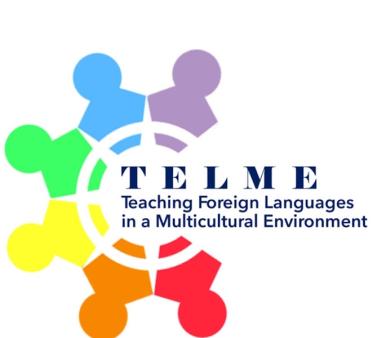There are two pathways for this degree:
-
Digital and educational engineering for foreign language teaching - English as a Foreign Language (ALE) / French as a Foreign Language (FLE)
and other languages (pathway 1: Digital and pedagogical engineering in teaching foreign languages) (Nipro)) -
- Description and Innovation in Linguistics and Language Teaching - French as a Mother Tongue Language (FLM) / French as a Foreign Language (FLE) / French as a Second Language (FLS)
and other languages (pathway 2: Description and Innovation in Linguistics (DIL)
A joint degree is proposed in conjunction with the Digital Humanities specialization.
Objectives
This specialization has the following objectives:
-
to train students in and through research by providing a basic grounding in applied linguistics in the fields of linguistic description (contrastive language analysis, corpus linguistics, development of linguistic databases) and in the challenges of research in the areas of language teaching and language engineering (action research),
-
to train students in the analysis of differentiated language learning and teaching,
-
to engage students in useful thinking about teaching, taking into account the variety of audiences (adult education, early learning, special-purpose learning) and of learning and training situations,
-
to develop the skills needed for research in and development of educational ICT-related teaching applications: design and expertise in teaching materials, distance-learning courses (FOAD), learning platforms, hybrid devices for language teaching,
-
to promote emerging professions related to the production, exploitation, valorization and/or didactization of digital language data.
Skills
-
Solid expertise in linguistic analysis (of English or French) for language teaching.
-
Identifying and analysing current events and issues in linguistics research, engineering and language teaching.
-
Designing and carrying out a collaborative project in the field of applied linguistics (language teaching; use of software and design of ICT devices; textual data analysis; corpus development and processing).
-
Envisaging a professional activity that takes into account new professions in the digital sector and their challenges.
Course Content
The training takes place over four semesters. The first two semesters are common to both pathways. Each semester is structured according to the same schema, which includes Teaching Units (UEs) apportioned in line with the desired objectives: Methodology Teaching Units (UEMs), Compulsory Core (UEFs), Professionalization (UEPs), Specialization (UESs), Languages (UELs).
Master 1: all the UEs are shared between the Digital and pedagogical engineering in teaching foreign languages (NIPro) and Description and Innovation in Linguistics (DIL) pathways. The UES options specify the language of specialization: English as a foreign language (ALE) / French as a foreign language (FLE). The UEPs include a compulsory job shadowing internship (10 hours in semester 7.5 hours in semester 8).
Master 2: the (UEF) (48 hours) is common to the NIPro and DIL pathways. Options 1 and 2 of the DIL pathway allow for the emergence of targeted action research projects at local, national or international level.
The joint degree with the Digital Humanities specialization encourages innovative research programmes combining expert language data analysis and digital humanities.
An applied and/or expertise dissertation and a defence + an internship report and a defence are required for successful completion of the Master 2 NIPro pathway. A research or action research dissertation in linguistics and/or language teaching (specialist language option or specific audience option) and a defence are required for successful completion of the Master 2 DIL pathway.
A research or action research dissertation in language data analysis and digital humanities is required for successful completion of the joint degree Language Teaching and Digital Humanities.




